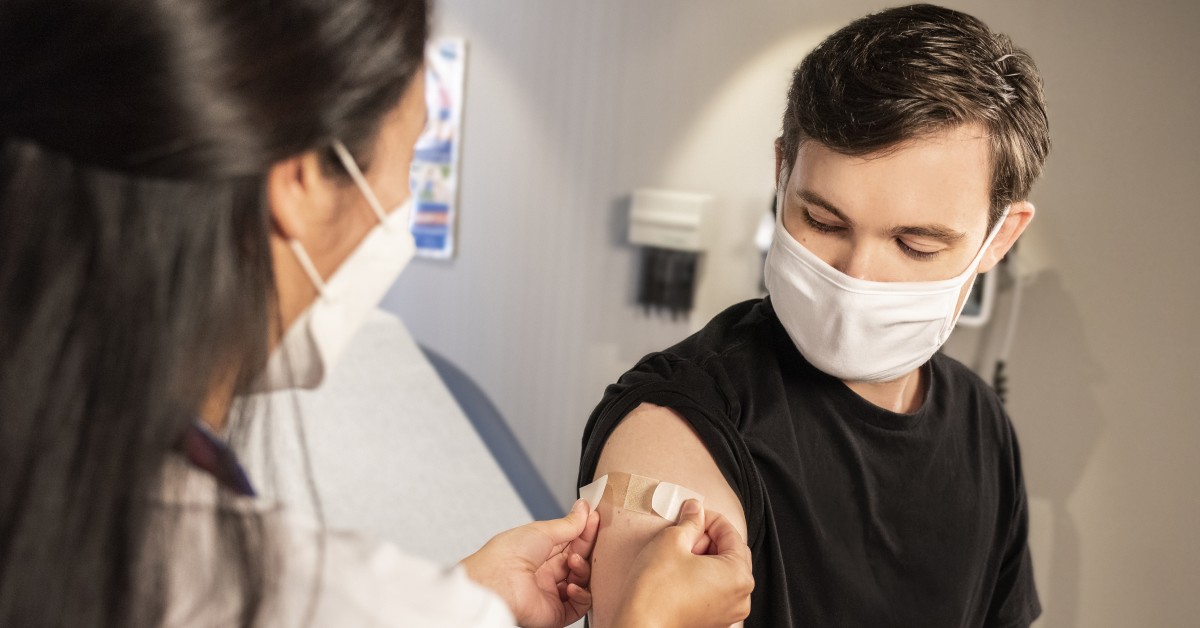
How Much Will You Earn with a Master of Science in Nutrition?
Based on what we eat, too many of us don't [...]

When you become a health educator, your job will involve teaching people and groups about healthy behaviors and strategies that promote wellness. There’s a lot more to the job than just leading a classroom or community meeting, however. The field offers a variety of options, and the one you pursue will determine how, why, and where you work.
Your day-to-day responsibilities as a health educator will vary depending on your role. One day, you might talk to a group about safer sex and work on a smoking cessation initiative. The next, you could write a newsletter about healthy eating and planning a talk about the dangers of excessive alcohol consumption. Or, you may conduct a public survey—and then compile that data. Your main goal, regardless of where you work or your daily responsibilities, will be to help individuals and groups lead longer, healthier lives.
But do you need a master’s in public health to become a health educator? Learning more about what it takes can help you decide whether this is the right career for you. In this article, we’ll cover:
What health educators do depends on where they work and the stage of the health initiative they’re working on:
Throughout it all, a health educator typically collaborates with individuals, community advocates, and policymakers to remain informed and to ensure messaging is framed effectively.
Other tasks and responsibilities health educators take on include:
In an interview with the StarTribune, Kathy Hedin, a Certified Health Education Specialist with Saint Paul-Ramsey County Public Health, describes her work as a health educator this way:
“I create documents and brochures for our programs. I speak at conferences on violence prevention and creating welcoming environments. I write curricula for guides to raising sexually healthy children and young people. I’m creating messages for a lot of different cultures, ethnicities, languages, and ages, working with people so I can better understand who they are and what they need.”
An understanding of public health and healthcare issues is obviously essential in this role, but the most critical skills you’ll need to become a health educator are:
Health educators have to be able not only to understand data and statistics but also to explain them in a way the public finds compelling. Everyone has heard that smoking kills, but that generic fact alone may not be enough to inspire someone to quit. Can you think of clever ways to prove to a reluctant quitter just how much damage smoking causes? Can you envision a toolkit full of strategies and resources that could make quitting easier for that longtime smoker?
When you become a healthcare educator, you’ll wear many hats: researcher, public speaker, teacher, writer, and advocate. To succeed in each of these roles requires cultural competence and a lot of empathy. You’ll need to understand why a person or population might engage in unhealthy or self-destructive behavior, and determine what motivations might convince them to change. Does the behavior spring from a lack of understanding? A cultural or social barrier? The answers will help you devise your approach to promoting healthier choices.
Health educators work in a variety of settings, including:
Where you work may depend on the specialization you choose. Within the health educator field, there are numerous specializations:
Health educators commonly have at least a bachelor’s degree, though what degree they hold varies. There are BS in health education programs at:
There are also health educators with bachelor’s degrees in health promotion, public health, community health, social work, and human services.
Your undergraduate major may actually be less important than the coursework you do. As you search for programs, look for those that give you not only the science and health background you need in this career but also the soft skills that will help you connect with those you serve. Some classes you might take when pursuing a BS in health education degree include:
You don’t usually need a Master of Public Health degree (MPH) or doctorate to get a job as a health educator. Still, finishing graduate school can make you a much more attractive candidate when you’re looking for work. That said, some health educator jobs—typically for the federal government, for state public health agencies, or in public school systems—may set the MPH as the minimum level of education required.
To choose the right master’s degree program, consider your short- and long-term goals. If you want to become a health teacher, you’ll eventually need a master’s degree in education. In state and federal agencies, you may need a master’s degree in public health (with a community health education concentration), a master’s degree in community health, or a master’s degree in health promotion.
Keep in mind that getting a master’s degree or a doctorate in health education represents a significant commitment—usually two years or more, depending on whether you study full-time or part-time, on-campus or remotely. Don’t embark upon this educational path without thinking long and hard about whether the expense and the time investment will pay off.
A number of schools offer Master of Public Health degrees online. They include:
Some, but not all, employers require that health educators hold the Certified Health Education Specialist (CHES) credential or the Master Certified Health Education Specialist (MCHES) credential. These certifications are offered by the National Commission for Health Education Credentialing.
The CHES certification is for health educators at the start of their careers—anyone with a bachelor’s degree that included 25 semester hours of coursework related to health education can take the twice-yearly certification exam. They then have to complete 75 continuing education hours every five years to maintain that certification. The MCHES is for health educators with at least five years of professional experience in the field.
Health educators earn about $46,080 per year, according to the US Bureau of Labor Statistics. Your career outlook should be good; overall employment of health educators is projected to grow by 11 percent by 2028, which is much faster than the average for all jobs. That growth may be driven by an increasing awareness that healthcare costs go way down when people have the knowledge and the skills to practice preventative care.
This is a rewarding career, albeit not an especially lucrative one. People have various reasons for choosing jobs in the public health field, but in general, they are driven not by money but by a desire to help individual people lead healthier lives and to spread information that promotes health and well-being in more populations. When you become a health educator, you will be able to see how your work positively impacts people in the present and in the future.
For some community health workers, that’s enough of a reward, and the relatively low salary potential isn’t a problem. These are the people who earn a bachelor’s degree and then build careers as health education specialists. If you want to help people and make more money, however, the best route might be to stay in school. You could potentially earn your MPH, work as a health educator for a few years, and then go on to earn a doctorate in health education or a doctorate in public health before moving into a better-paying community health director role.
Questions or feedback? Email editor@noodle.com

Based on what we eat, too many of us don't [...]

As a math teacher, you may qualify for higher pay [...]

The keys to maximizing your income as an English teacher [...]

Do music teachers make more than their fellow educators? Not [...]

Social work includes healthcare and health policy services. That's where [...]
Categorized as: Public Health, Nursing & Healthcare